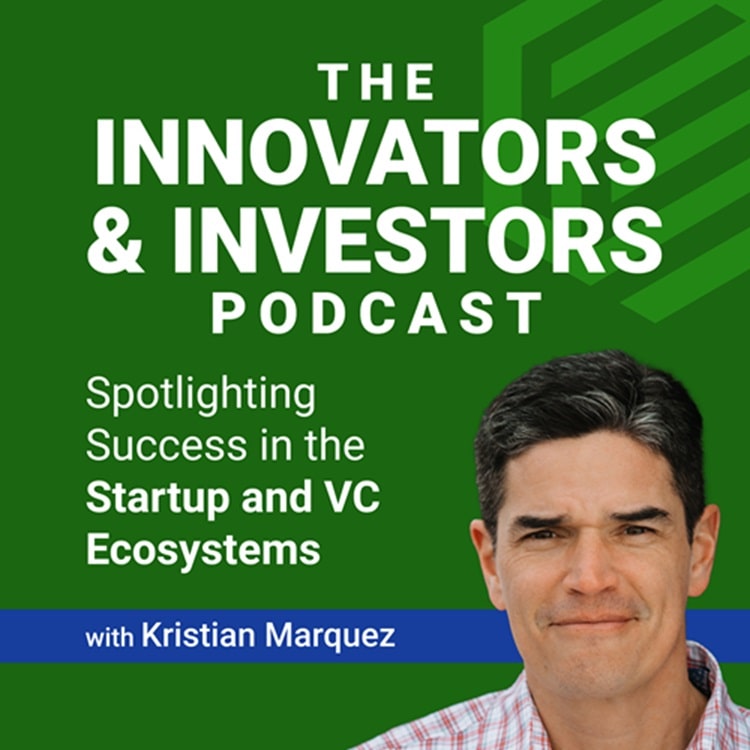How can Start Up Founders Balance Careers, Startup, and Retirement
Key Insights from the Money Seed Podcast
Kristian Marquez, CEO and founder of FinStrat Management, shared valuable insights throughout the interview. To recap some key points:
- Kristian pursued the CFA certification due to its rigorous requirements, demonstrating dedication to the finance profession. The CFA also offers earning potential and opens doors, despite being a fraction of the cost compared to an MBA.
- Startups appeal to Kristian for the creative opportunity to build something valuable and make a difference. However, in the current rising interest rate environment, he advises entrepreneurs to consider businesses with a higher probability of being cash flow positive initially, such as professional services. This provides a foundation to pursue riskier ventures later.
- For his personal investments, Kristian favors real estate for its leverage opportunities and positive cash flow potential. He believes real estate is an excellent starting point for passive investing before diversifying into other sectors like AI or fusion technology.
The CFA Certification: Difficulty, Dedication, and Value
Kristian pursued the CFA certification due to its renowned difficulty, demonstrating his dedication to the profession. The exams have historically low pass rates, with the Level 1 exam averaging around 41% (Source). Passing all three levels signifies a substantial commitment and determination.
Moreover, the CFA charter holder designation is in high demand yet limited supply compared to other finance credentials like MBAs. This supply-demand dynamic enhances earning potential and career opportunities for CFA charterholders. Notably, the CFA program’s cost is a fraction of a typical MBA, making it an attractive, cost-effective option for those on a budget (Source).
The Creative Thrill of Building Something Valuable
Working at a startup offers the opportunity to express creativity by building something of value, much like an artist creating a piece of artwork. The process is an evolution, where the founder learns not only about the market but also about themselves through the rapid feedback loops that startups often experience. There is a sense of fulfillment in convincing customers to exchange money for the product or service being offered, knowing that what has been built is benefiting others’ lives. (Source)
Impact of Higher Interest Rates on Startups
As the Federal Reserve raises interest rates, the cost of borrowing increases for businesses and consumers alike. This has a profound impact on startups and early-stage companies that have historically relied on cheap capital to fuel growth at all costs. With higher interest rates, investors now have more attractive options for their capital, making them more discerning when evaluating potential investments.
This new environment has shifted the focus from pure growth to profitability and cash flow positive businesses. As Kristian Marquez notes, “Now companies are thinking about, ‘Well, I have to be a little bit more thoughtful of what my spending plans are going to look like, how much I invest in my pipeline, how I’m going to nurture and grow the top of my funnel to get more closed W’s.'” Source
Consequently, there is a preference for businesses that can generate positive cash flow and sustain operations without constant capital infusions. Service-based businesses with existing revenue streams are viewed more favorably, as they provide a foundation to pursue riskier ventures once profitability is achieved.
Balancing Persistence with Knowing When to Move On
Successful entrepreneurs must strike a delicate balance between persistence and recognizing when it’s time to move on from a venture. As Kristian Marquez notes, some founders have persevered for years, iterating and pivoting in their quest to bring their vision to life. However, he cautions against stubbornly clinging to a failing endeavor, drawing parallels from the tactics of successful hedge funds.
Marquez explains that profitable hedge funds consistently generate returns not by their investment choices, but by their disciplined approach to cutting losses short. They set predetermined loss limits and adhere to them strictly, exiting positions that move against them. This allows their winners to outweigh their losses, resulting in an overall positive return. He advises founders to adopt a similar mindset, acknowledging when the market is unwilling to exchange money for their product or service, and pivoting or shutting down accordingly. As the source Shutting Down Your Startup states, “If they don’t have a pivot, I suggest shut down. I will have more respect for that founder.”
Leveraged Investing and Cash Flow Benefits
One of the primary advantages of real estate investing is the ability to leverage your investment through mortgage financing. As Investopedia notes, leveraging allows you to acquire properties with a relatively small amount of upfront capital, enabling you to potentially earn a higher return on your invested dollars. Furthermore, the rental income generated from investment properties can provide a steady stream of cash flow, which can be used to cover mortgage payments, expenses, and potentially generate passive income.
Many high-net-worth individuals and successful investors have built their wealth through real estate investments, capitalizing on the power of leverage and cash flow. The ability to use other people’s money (through mortgages) to acquire appreciating assets and generate ongoing income streams is a compelling proposition for those seeking to build long-term wealth.
The Challenge of Consistently Beating the Market
Consistently outperforming the market is an immense challenge, even for professional investors and fund managers. As noted in the Reddit discussion here, to continually beat the market, you need to be consistently capitalizing on your winners while limiting losses. This requires a disciplined approach to managing losses and letting your winners run.
Institutional investors like hedge funds often have an advantage over individual investors, as they can employ sophisticated quantitative models and strategies unavailable to most retail investors. However, even for institutional players, consistently beating the market over the long run is extremely difficult, as noted in this Investopedia article.



